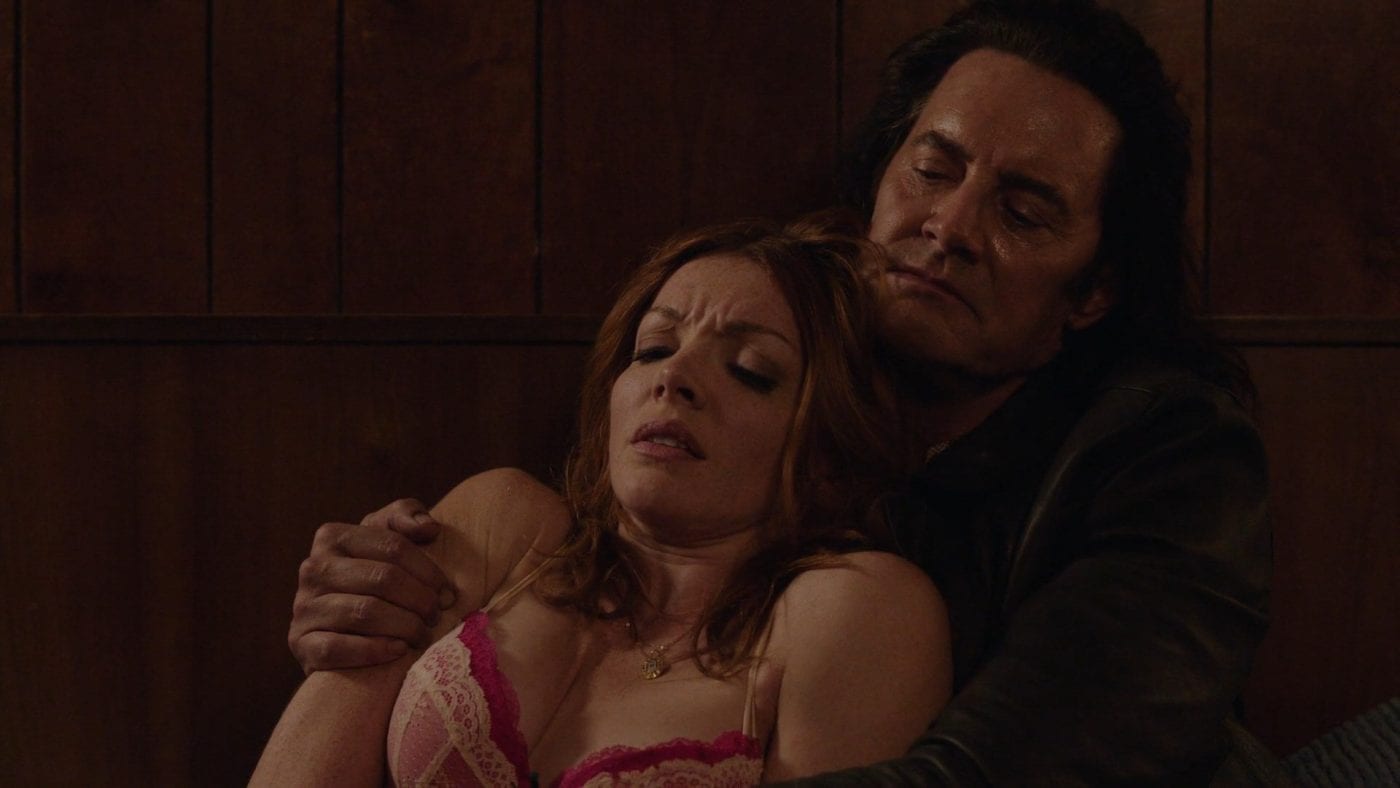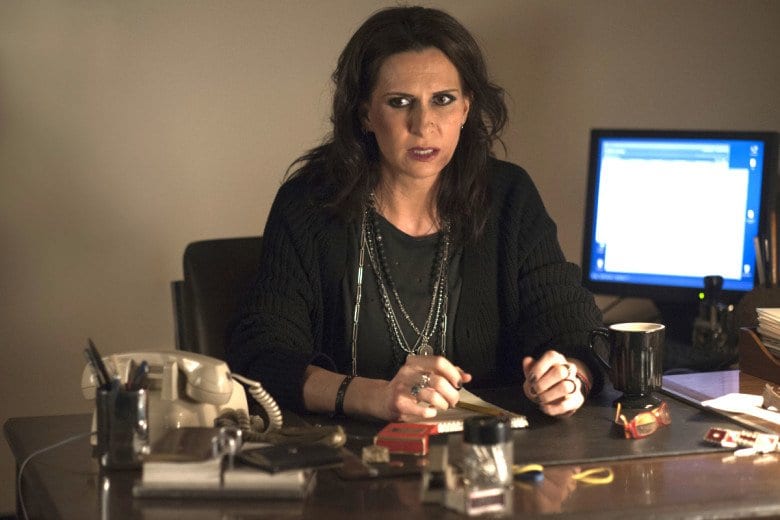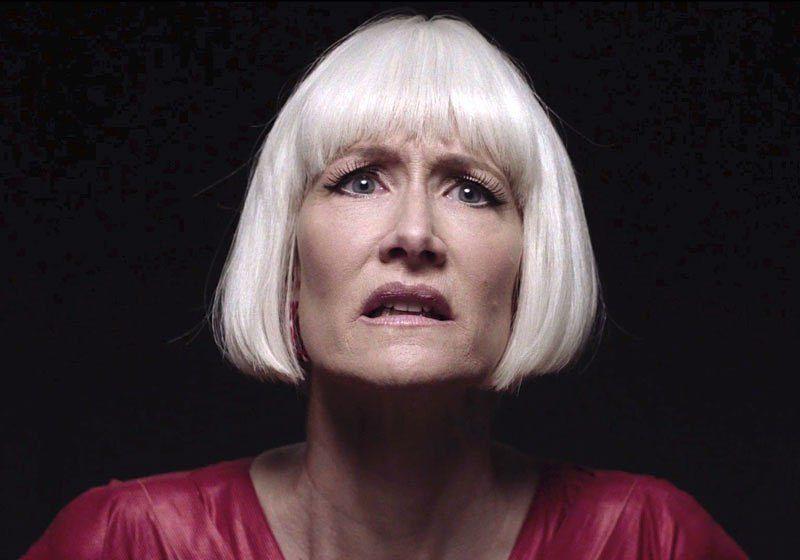Welcome to the first edition of my new series, Twin Peaks Topics. Once a month I’ll have a guest join me and we’ll pick one topic from the world of Twin Peaks—a topic that the guest gets to pick themselves – and we’ll dive deep and really linger over the details. So grab yourself a cup of coffee and maybe even a slice of cherry pie and enjoy what is bound to be some lively conversation.
Andrew: Lindsay, you recently wrote an article called “It’s a World of Bobs” and I was going to see if you could give a brief description of what that article was about.
Lindsay: It came to my attention by December or January, once the #MeToo and #TimesUp movements picked up and were starting to make waves that I thought, you know, is it necessary for us to reevaluate some of the media or the things that we love about pop culture in light of this? Is that something we need to do? And I thought “I’m going to look at Twin Peaks in this light.” So that’s what the article was really about, taking a look at that through the eyes of someone who had seen and been impacted by the #MeToo and # TimesUp movements. I don’t want to criticize David Lynch and say that he absolutely is guilty of something that he’s not. I don’t think that he’s a misogynist and I don’t believe that he or Mark Frost are any way implicated in #MeToo and # TimesUp movements. But there are certain things that come up again and again in David Lynch’s work and especially in Twin Peaks regarding violence against women and especially sexual violence against women. And then in Season 3, it seemed like that was amped up to a really heightened level. So I just wanted to look at if that was really necessary to tell the story that needed to be told? In the end, I wasn’t sure if it was or not but there were certainly things that were troubling about it, and I think people had picked up on that as well, but nobody was really sure how to talk about it. I think even now; maybe it’s too early to really think about that. But I wanted to give it a shot anyway. Especially after Roxanne Gay wrote an article about Roseanne, looking at that in light of current events and Molly Ringwald wrote one about reevaluating The Breakfast Club. So I thought, you know, other people are doing this too, so maybe it’s not completely out of the left field to kind of approach Twin Peaks in that kind of way.
Andrew: Aidan, was this something that you had thought about prior to Lindsay’s article?
Aidan: I considered it for sure but it wasn’t top of mind. I’d always kind of taken a bit of a hands-off approach to the sexualized violence in Twin Peaks because I was just like, “Well they’re just reflecting reality and I think that’s still a fairly justifiable way of looking at it.” But Lindsay, you know, she told me about this article and I’m skeptical the whole time. I was like, “Well, you know, that’s what they’re doing. They’re just showing what happens and it’s terrible and it seems egregious but that’s because it’s still happening.” After I read the article, I was like, “Oh yeah, you know what? You’ve got a really good point.” That was kind of my journey through it because I did really start off as kind of a skeptic.
Andrew: Lindsay, you said you didn’t come to any definite conclusions. Do you still feel that way now that you’re a little bit removed from writing the article?
Lindsay: You know…part of me wishes I’d taken a little bit more of a stand and I think if I had sat with this for another few months, I might have taken more of a stand on it. I think that’s just the nature of this discussion is that it evolves in my thinking. So, if you ask me today, I might say something different than I would say tomorrow, but I’m not angry at the show for doing what it does. I’m not angry at Lynch and Frost for poking at that question or dealing with these issues. I don’t think that it’s a bad thing. I think people who have been through a trauma like that are going to respond to it much differently than I did or than somebody else might. So it’s a really personal journey and I think that’s something that anybody will say about Twin Peaks, that everybody comes at it from a different place. I do think there is an element like Aidan said about holding a mirror up to society and showing what actually exists. I think that that is necessary too but I do think that it was over the top at times.
Andrew: This question is to both of you. What would be some examples that you consider the most extreme and potentially unnecessary acts of violence towards women throughout the third season?
Lindsay: I think for me, the biggest one that comes to mind right off the top of my head is the violence against Darya in Part 2. It’s particularly sexualized. She’s scantily clad, and Mr C is fully clothed, and there’s just an extra layer of vulnerability there that I feel really uncomfortable with. I feel that that was a little bit unnecessary. She didn’t have to be half naked and there didn’t have to be a sexual relationship between the two of them. She could have just been someone who snitched on Mr C and it didn’t have to have that extra layer of vulnerable sexuality glossed over top.

Aidan: The one that always jumps to my mind was Lorraine. It’s an office full of women and three women get killed in the span of like a single minute on screen or something like that. It’s the most brutal murder in Twin Peaks in my opinion because it’s personal. It’s bloody. It doesn’t have any of the emotional impact that Maddy getting killed had, but it’s shown almost to the same level, it zooms right in on the stabbing motions, and you hear it. And it’s squirting blood, and there’s this playful music to it. It’s just that it didn’t really seem that needed quite so much, especially because they’re minor characters. It always bothered me.
Andrew: David Lynch and Mark Frost are obviously known for a lot of different things. For those that follow Frost on Twitter, [we] know how socially conscious he is and David Lynch has a reputation with some of his female characters, not in every film, but in a few where they go through this journey of being beaten down only to emerge victorious somehow in the end. Even in the case of Laura Palmer, victorious in death. Knowing these things about them, does that change your opinion at all? Do you think that perhaps there was something more that we should be looking at as viewers or was this just a case of them perhaps not being quite as up to date with social themes as we would like them to be as viewers?
Lindsay: That’s a great question because I think this conversation, the larger conversation, has kind of branched out. They (Lynch and Frost) haven’t come out and said anything about this in terms of their work. Maybe it doesn’t matter; maybe they don’t need to say anything. David Lynch never says anything about this work. I think that their approach is perhaps a little bit harsh, but I think that ultimately they’re trying to do the same thing that other people were doing. They just have a different method of achieving that.
For David Lynch to always have a woman in trouble like that’s his M.O. — it’s a big motif for his films—it’s to achieve a certain narrative end. So it’s something and who knows why right? Complex psychological reasons why an auteur would go back to the same wellsprings for years and years and years? But it worked for him, and he tells his stories the way he wants to tell them by doing that. That’s what he does. But it does have — it has consequences I guess because if you’re constantly showing women in trouble and virtuous men who try and save them and either do or don’t, or the woman maybe saves herself or doesn’t— there are various ways of looking at that. It kind of makes that whole damsel in distress play out a little bit cliched, almost in a sense. Not that anything in David Lynch’s films are cliched…
Aidan: He plays with tropes and clichés and does different things with them. But yes, he does come back to the same one over and over. Maybe it’s just because, as you said, it just works for him. So he goes back to it because he knows that he will be able to generate that emotional response. He knows that the damsel in distress evokes a certain response from the audience and you know, the spins that he puts on it, the response can be mitigated and transformed a little bit by those things. Like when you watch Inland Empire and a female character or characters, depending on how you understand that movie, are having trouble, but at the same time she’s having dance sequences to Kylie Minogue songs and it’s all part of this journey of the characters being in trouble. It doesn’t feel quite like a typical damsel in distress, but at the heart of it, it’s still is. And I think that’s — to get back to your question, Andrew, eventually—it’s hard to judge that because they’ve always been at least a negligent case. He’s always been kind of keeping that artistic distance from the trope. So, with that in mind, it’s kind of both. It makes it easier to say when its cliche and abuse of women and also harder because he literally separates the cliche quite often, but he still relies on the cliche to get that initial emotional response. So it’s really hard to say, I think.

Andrew: You already touched on what was going to be my next question. You compared the death of Lorraine to the death of Maddy, and you even noted on the emotion behind Maddy’s death. I want to dive a little bit deeper into that. What makes those situations different for you? Maddy’s death has often been referred to as one of the most violent things that anyone’s seen on television. How does the act of having more emotion in the story not make it more acceptable, but perhaps easier to ingest as part of the story, when compared to a cold killing like, Lorraine?
Aidan: We got to know Maddy, we got to see her and watch her, you know, and her death is tied up also with the reveal of Bob. This whole journey into this chaotic kind of place, that’s all tied together into that one moment. Whereas with Lorraine, I’ve seen her two times. She’s been on the phone in an office, and then in that same office, she comes and gets stabbed. We don’t have any connections to any other storylines or to the character herself: we don’t really care that she’s dying. So the visual, you know, the grossness of it really takes over. That’s all you remember about it. Whereas when Maddy dies, you remember, “Oh my god, this is Bob, and oh my god, Agent Cooper, what are you doing? Why are you at the Roadhouse?”
Lindsay: If I can add something here. This was something that came up in conversations with other writers and editors at 25YL. I was kind of workshopping the essay before and there’s this element of an anonymous death. Lorraine dies and it’s like almost nameless. She’s on the screen for all of however-many seconds and then she died. And so it’s like, how if there is no emotional connection, why does it bother us? And that that might be a commentary on the wider problem of, you know, excessive reporting of violent acts or desensitization of our culture towards violent acts.
Andrew: One of the other big topics that I wanted to bring up was the sexual violence with Audrey and Diane being the prime examples in Season 3. Now we have known since early Season 2 of Twin Peaks that it was a story of sexual violence. Even before we knew who Laura Palmer’s killer was that it was the story of an abused girl, that she was a prostitute, and that her life went down a very sexualized road as a result of the abuse that she endured. We knew that sexual violence was a big component of the story. Season 3 introduces two more victims in Audrey and Diane of Bob or Mr C. However you choose to define that, and the reaction was much different. People were upset. How did that sit with you knowing that Twin Peaks has a history of sexual violence towards women and then these two characters, one who is a franchise player and then the other who’s the name that we’ve known from the beginning, are now introduced as victims of rape.
Lindsay: I was one of the first people to bring that up on the site about the show. It’s like, “Oh, something bad happened to Audrey and Richard is the result and this is not good.” And people were like, “No, how could you think that, this is awful?” And it’s almost like there was this like suspension of disbelief, almost that people were like “That’s not what they show is about.” But that’s what the show was from the beginning. And if you’re going to deny that then you’re denying Laura Palmer, you’re denying everything that happened to her. You’re denying every single one of her experiences and you’re also denying the very real story of what happened to Audrey and what we find out happened to Diane as well.
Aidan: You know, we’ve talked about violence against women and how that was at the core of the show all the way from the beginning—it’s a dead body we start with, so that was always there. So that kind of leads me away from thinking that they’ve kind of overdone the violence because that’s what the show started. You knew it was going to be there. I think they amped it up and you know, they didn’t create the emotional resonance of it for the physical violence so much the sexual violence, with Audrey and Diane. Two of the characters we knew in the very first episode of the show – granted we only knew Diane through Cooper – but these are two of the most important female characters in the show and they were the most important to Cooper. So it makes a lot of sense that they were the victims and it lends a little more credence to the overall idea that the creators had a purpose for what they were doing.

Aidan: They were hitting us where it hurts, not so much with the physical violence, like with Miriam or Sylvia Horne. Those instances were really brutal and violent and hard to watch, but it was the sexual violence that really came to the emotional guts. We don’t see sexual violence; it wasn’t like we never saw someone being raped on screen. We heard about it, and that is an important distinction to make because maybe that’s where they drew a line in the sand or like, you know, “We’re not gonna do that even though it’s shown in Fire Walk With Me.” It wasn’t shown in Season 3 even though it was talked about. And I think that that is important to note. You couldn’t have shown all of Laura’s journey without her coming to that realization of who Bob was in her bedroom. That’s the emotional climax of the movie in a lot of ways.
Here they did it differently. The stuff that they dealt with on-screen about sexualized violence is Diane remembering and breaking into tears when she sees Cooper again. Audrey’s not able to get to precisely what it was or remember the experience of it, maybe because she wasn’t perhaps conscious for it, but I mean that dislocation, the fact that you don’t know where Audrey is, it’s kind of a metaphor for exactly for the outcome of that. The sexualized violence, to me, it was far more interesting and nuanced than the other violence in Season 3.
Join us next month as we continue this conversation, with the focus shifting to the two main characters in the Twin Peaks universe, Cooper & Laura.




2 Comments
Leave a Reply